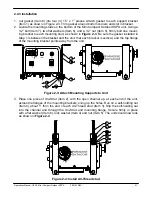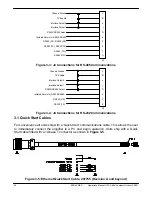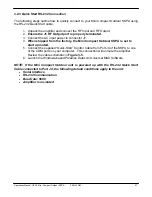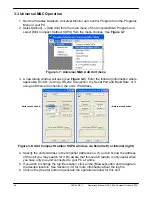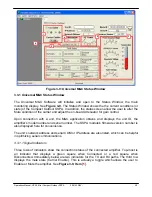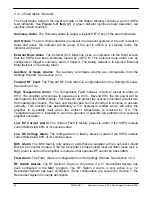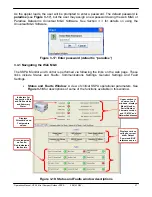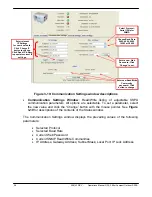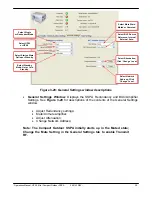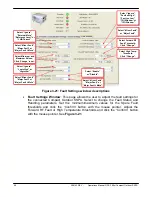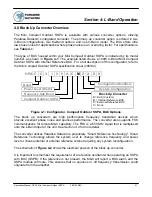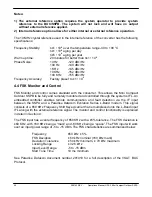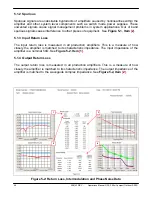
34
208143 REV -
Operations Manual, HPA3, Mini Compact Outdoor SSPA
[
13
]
Fault Setups
: The user may also adjust the Spare, Auxiliary, BUC, Fiber,
and Forward RF Fault Status and Handling via the appropriate pull-down menus
on the Settings Window.
[Type] Fault Handling:
Selects whether the associated fault should be a
major or minor fault, and whether the fault should mute the unit. A minor
fault will trigger a Spare/Auxiliary/BUC/Forward RF Fault alarm but not
trigger a Summary Fault. A major fault will trigger both an Spare/
Auxiliary/BUC/Forward RF Fault and a Summary Fault.
[Type] Fault Status:
Determines if the associated fault input should be
ignored or enabled (either Logic High or Logic Low for Auxiliary Fault or
Fiber Fault).
Forward RF Threshold:
Allows the user to assign the threshold at which
a Forward RF Fault will be triggered.
3.3.3 IP Setup
If the user wishes to set up the networked Mini Compact Outdoor SSPA with custom IP
settings, the internal IP settings need to be modified. Click on the IP Setup Tab. See
Figure
3-12
.
•
The SSPA will use the default settings until the unit is reset by removing its AC
power. Unplug the Quick Start cable from the M&C connector. (
If the unit is
restarted with the Quick Start cable connected, it will always come up with
default IP settings
). Apply power to the SSPA. Re-plug the Quick Start cable
into J4, and check connectivity with the custom IP settings.
•
Make sure that the Protocol Select setting in the Settings tab of the Universal
M&C is set to
IPNET
, as shown in
Figure 3-10
.
•
If custom IP settings will be used in normal operation, do not use the Quick Start
cable (207755) that was shipped with the unit. The user will need to construct
an IP cable with connections to J4 as shown in
Figure 3-2
. In this configuration,
the SSPA will always use the saved communication control settings rather than
the default configuration.
Figure 3-12: Universal M&C, IP Setup
Click
“Change IP Settings”
Modify IP Settings
to work with your network.


